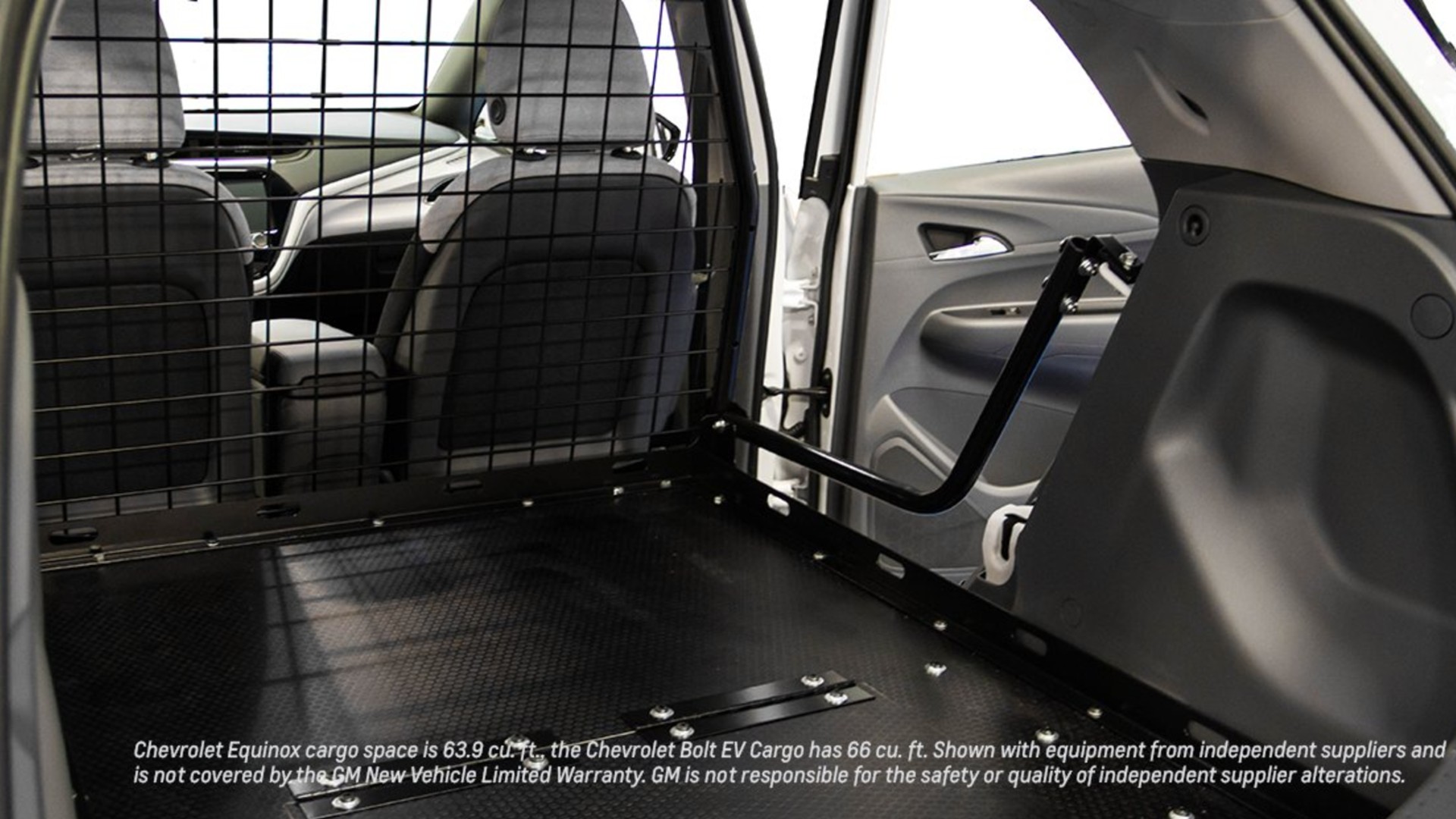

These next few years, a huge wave of electric vans will wash over America’s commercial vehicle segment. Detroit’s Big Three will clash with upstarts like Bollinger, Canoo and Rivian over the e-van market, all of them hoping to cut themselves the biggest piece of the pie. But as of September 2020, electric van options in the United States are pretty thin on the ground, and consist only of one vehicle you’ll be surprised to learn exists: a commercial Chevrolet Bolt EV with deleted rear seats.
Available as of model year 2019, the commercial Bolt can be ordered with a Rear Seat Delete Package, which can only be ordered through GM’s fleet sales program. It increases the Bolt’s maximum cargo capacity from 56.6 cubic feet with the rear seats folded to 66, which GM proudly touts as being more than you get from an Equinox.
Multiple aftermarket upfits for the supposed blue-collar Bolt are available: one from Adrian Steel adds a cargo area partition and a pliable floor, while Knapheide‘s package can be configured with boxes, drawers, or shelving. Each add a couple grand to the commercial Bolt’s entry-level price of $36,620, which doesn’t account for $1,875 worth of federal tax credits. All come with attractive eight-year, 100,000-mile warranties on the powertrain, which consists of a 66-kilowatt-hour battery that can return an estimated 259-mile range, or feed enough juice to the front axle-mounted motor to produce 200 horsepower and 266 pound-feet of torque.

But while the Bolt may be available as a commercial vehicle, its utility as such is questionable. It’s significantly smaller than a Ford Transit Connect, which starts at a price more than $10,000 cheaper, offers more cargo space and comes without the limitations of an electric powertrain. Recouping the Bolt’s extra cost by not buying gas isn’t a great argument for it, as at current prices, it’d take well over 100,000 miles to make up the difference, by which time the battery may have begun to degrade.
As a commercial vehicle, then, the two-seater Bolt makes little sense for any business other than those looking to put a green foot forward. Even then, they may be better off waiting for GM’s purpose-built electric van or its Ford Transit-based rival, both of which could launch as soon as late 2021. And when they do, something tells us the back seat-less Bolt won’t stick around long.
Got a tip? Send us a note: tips@thedrive.com